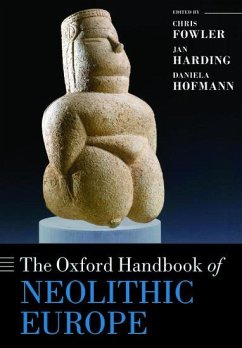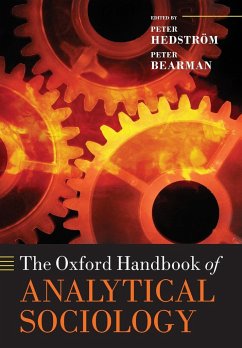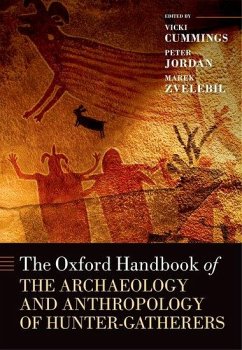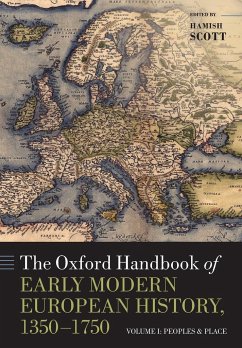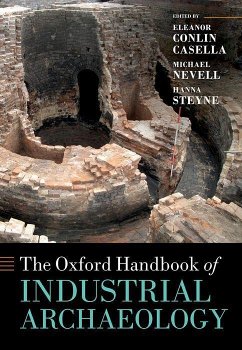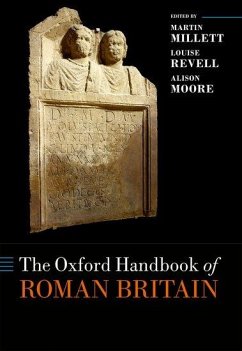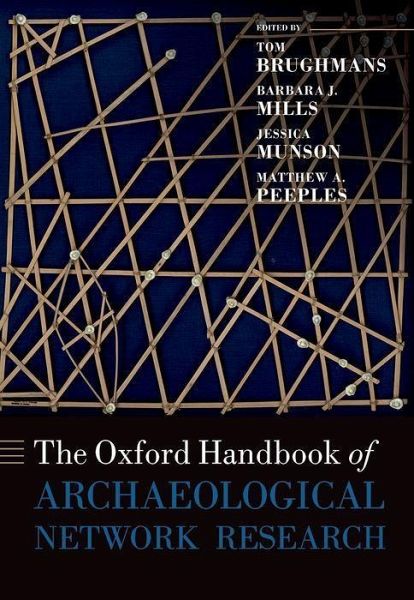
Gebundenes Buch
The Oxford Handbook of Archaeological Network Research
Versandkostenfrei!
Versandfertig in über 4 Wochen

PAYBACK Punkte
80 °P sammeln!




This Handbook is the first authoritative reference work for archaeological network research, featuring current topical trends and covering the archaeological application of network methods and theories.
Tom Brughmans is an associate professor at Aarhus University's Classical Archaeology and Centre for Urban Network Evolutions (UrbNet). His research interests include the study of past social networks, Roman ceramics, citation networks and visual signalling systems. He performs much of his work by applying computational methods such as network science, agent-based simulation and geographical information systems. He leads the Past Social Networks Project, which aims to encourage the open publication and reuse of past social network data, through developing a dedicated repository and metadata standards. Barbara J. Mills is Regents Professor of Anthropology at the School of Anthropology, University of Arizona. She has edited or authored eight books and monographs, and dozens of articles and chapters in books, including "The Establishment and Defeat of Hierarchy: Inalienable Possessions and the History of Collective Prestige Structures in the Puebloan Southwest" (2004, American Anthropologist), winner of the Gordon Willey Award. Jessica Munson is Associate Professor of Archaeology and Anthropology at Lycoming College. Her research combines archaeological fieldwork with quantitative studies of settlement patterns, household possessions, and hieroglyphic inscriptions to investigate the long-term dynamics of sociopolitical systems and spread of cultural innovations across the Maya lowlands. She is also director of the Proyecto Arqueológico Altar de Sacrificios (PAALS), a multidisciplinary project that combines regional survey, household excavations, and paleoenvironmental studies to examine the diverse factors that contributed to the development of inequality and socioeconomic difference in ancient Maya society. Matthew A. Peeples Associate Professor of Anthropology in the School of Human Evolution and Social Change at Arizona State University, and Director of the ASU Center for Archaeology and Society. His research is focused on using network methods and models with archaeological data to address questions revolving around the nature of regional scale social networks over the long-term in the ancient US Southwest and Mexican Northwest. He serves as co-PI of cyberSW, a cyberinfrastructure project focused on providing archaeological data and open-access tools to analyze them to facilitate interdisciplinary social science research in the US Southwest.
Produktdetails
- Oxford Handbooks
- Verlag: Oxford University Press
- Seitenzahl: 736
- Erscheinungstermin: 23. Februar 2024
- Englisch
- Abmessung: 241mm x 183mm x 71mm
- Gewicht: 1382g
- ISBN-13: 9780198854265
- ISBN-10: 0198854269
- Artikelnr.: 68056274
Herstellerkennzeichnung
Libri GmbH
Europaallee 1
36244 Bad Hersfeld
gpsr@libri.de
Für dieses Produkt wurde noch keine Bewertung abgegeben. Wir würden uns sehr freuen, wenn du die erste Bewertung schreibst!
Eine Bewertung schreiben
Eine Bewertung schreiben
Andere Kunden interessierten sich für


